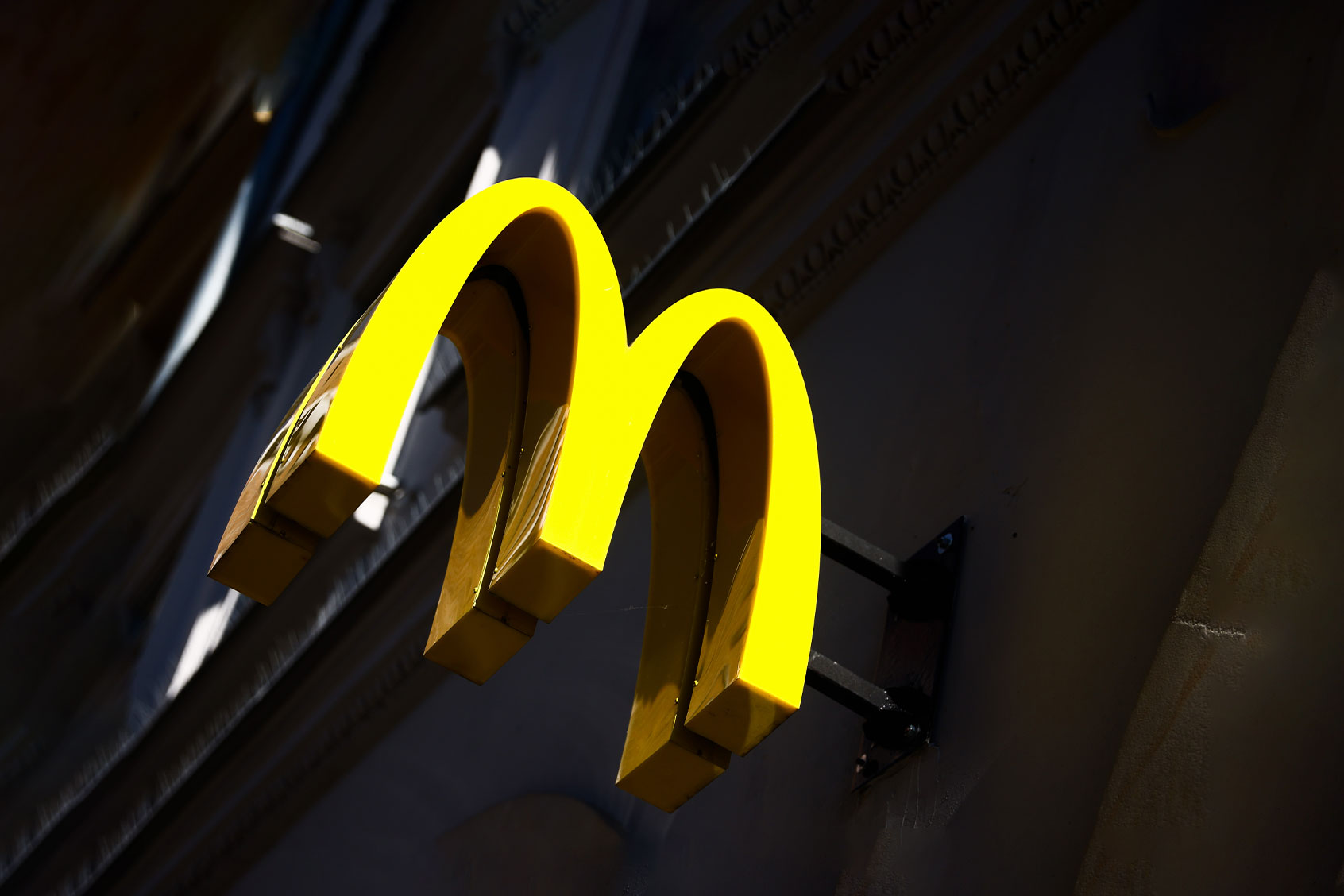It’s been a turbulent stretch for McDonald’s, with public health scandals, policy reversals — and now, a boycott.
Last fall, the fast-food giant landed in hot water after a deadly E. coli outbreak was traced back to fresh, slivered onions served on its Quarter Pounder hamburgers. As a result, McDonald’s suffered from significant declines in sales and customer visits, forcing the company to do damage control by launching a new Chicken Big Mac, providing more than $60 million to franchisees in affected states and spending an additional $35 million on marketing to promote deals such as its $5 value meal.
Then, in January, McDonald’s made the decision to scale back some of its Diversity, Equity, and Inclusion (DEI) initiatives, following in the footsteps of several corporations that rolled back their programs in the wake of Donald Trump’s election. The company said it’s retiring its specific diversity goals, including pausing external surveys that measure corporate diversity and requiring suppliers to commit to certain DEI pledges. McDonald’s also changed the name of its diversity team to the Global Inclusion Team.
In the wake of its recent headlines, McDonald’s has now become the target of an ongoing boycott initiated by The People’s Union USA, a grassroots advocacy group. The union’s founder, John Schwarz, explained in an Instagram post that the union is demanding “fair taxes, an end to price gouging, real equality, and corporate accountability.”
The boycott began on June 24 and is expected to continue until next Monday, June 30.
“This is about more than burgers and fries, this is about power,” The People’s Union USA wrote on Instagram. “When we unite and hit corporations in their wallets, they listen…This is a show of strength, solidarity and people powered change. Let them feel it. Let them hear us.”
Earlier this month, Schwarz provided a list of reasons for the boycott, saying McDonald’s is guilty of “exploiting tax loopholes,” engaging in “price gouging while wages stay low,” “suppressing workers’ rights and union efforts,” “supporting political figures who threaten democracy,” “practicing performative DEI with no meaningful change” and “prioritizing profit over people, community and truth.”
Schwarz isn’t alone in his criticisms of the fast-food chain. Last October, Sens. Elizabeth Warren of Massachusetts, Bob Casey of Pennsylvania and Ron Wyden of Oregon slammed McDonald’s for substantially hiking up menu prices.
“Earlier this year, McDonald’s USA President Joe Erlinger tried to blame the company’s menu price increases on inflationary pressures and input costs, but the data tells another story,” read a letter written by the three senators and addressed to the company’s corporate leadership. “McDonald’s operating profit margins were 52% in the same year, the highest of the ten largest publicly traded fast food companies.”
Want more great food writing and recipes? Sign up for Salon’s free food newsletter, The Bite.
“Corporate profits must not come at the expense of people’s ability to put food on the table,” the letter added.
In statements to NBC News, Casey further accused McDonald’s of “textbook greedflation,” and Warren said McDonald’s is “squeezing customers to make massive profits, paying out billions to wealthy shareholders, and then turning around and blaming inflation for high costs.”
As for whether the ongoing McDonald’s boycott will have a significant impact remains unclear at this time. The People’s Union USA previously called for boycotts of other major corporations, including Amazon, Nestlé, Walmart, General Mills and Target.
“The truth is, McDonald’s built a global empire off low-wage labor, clever accounting, and aggressive lobbying,” Schwarz told Newsweek. “They report record profits, nearly $9 billion this year, while many of their workers still can’t afford basic healthcare or rent. That’s not opportunity. That’s exploitation dressed up as service. This boycott isn’t about fast food. It’s about accountability. The People’s Union USA stands for the growing number of Americans done tolerating corporate greed, inequality, and empty promises.”
In response to the boycott, McDonald’s told Newsweek, “We welcome honest dialogue with the communities we serve, but we’re disappointed to see these misleading claims that distort our values and misrepresent our actions. Our focus remains on serving our customers and communities. We’re here and ready to serve.”
McDonald’s issued a similar statement to CNN, saying, “The McDonald’s System also generates billions in federal, state and local taxes annually, and we’ll continue to pay our fair share.”
Read more
about corporate boycotts:


